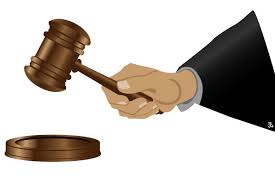Safe Seller Financing Tips
It’s a tough time to sell a house.
Hoping to stand out from the crowd, sellers are advertising “Owner Will Finance!”
Accepting payments over time provides buyers an alternative to bank financing. Of course sellers don’t want to trade a house that won’t sell for a buyer that won’t pay.
Before you agree to “Be the Bank” read these Tips For Safe Seller Financing!
![]() Incorporate the Dodd-Frank – CFPB Guidelines
Incorporate the Dodd-Frank – CFPB Guidelines

Engage the services of a Loan Originator to create a compliant file incorporating the Dodd-Frank CFPB guidelines, which will be the very same documentation required by a traditional lender. Equal to Fannie Mae 1003 Loan Application which will include these 8 items to make a compliant file:
Employment Status
Debt to Income Ratio
Credit history***
Monthly Mortgage Related Obligations
Monthly Debt Payments
Other Monthly Debt Obligations
Not following those guidelines will leave the original lender and the subsequent note buyer with huge liabilities. This includes balloons, interest rates and qualifying the buyer to name just a few.
The buyer can and will pay the required fee which could be as high as $1500.
*** The payer’s credit report lets you know how timely they have paid bills in the past. This is a good indicator of how they will pay on a seller-financed note. It also has a huge impact on how much an investor is willing to offer, should the seller ever decide to sell the note payments. Sadly, many sellers never check credit when offering owner financing. Have the buyer fill out a simple one page application that grants permission to pull their credit upfront or ask the buyer to pull their own credit and provide the report. Whenever possible, avoid accepting owner financing from any buyer who is not current with timely payments in the prior 24 months.
Blemishes or job situations happen, on-going negligence is systemic.
………….Good Documentation = Good Loan = Higher Profit
![]() Set Interest Rate at Valuable Marketable Level
Set Interest Rate at Valuable Marketable Level

Unfortunately, some Owner Finance Sellers think creating a high interest rate Note is more in their favor. The truth of the matter is your setting yourself up to face Foreclosure in the future (and bordering on being Dodd-Frank non-compliant). Conversely, creating a Note with very low interest rate you’re setting yourself up to be the Bank for the lifetime of the loan ignoring Time-Value-Of-Money factor.
Charge at least two to four percent above the standard bank loan rate for a similar loan transaction. Be sure to take into consideration the Borrower’s credit, property type, and down payment, which may justify further increases in the interest rate.
![]() Low or No Down Payment
Low or No Down Payment

Require a down payment if possible of at least 15% to 20% at closing, but never ever below 10%. When little to nothing is invested in property, there is little incentive to “fight” to save the investment. The amount of the down payment should be tied to the credit score of your buyer. Someone with a 750 credit score would be less of a risk than someone with a 550 credit score.
RULE OF THUMB: Someone with 650 or below credit score should put at least 20% down.
MAKE THE PAYMENTS AFFORDABLE – within the guidelines of Dodd-Frank.
![]() Collect Payments Like a Pro
Collect Payments Like a Pro

Engage the services of a loan servicing company when the note is originated and have the buyer pay the set up fees and the monthly servicing fees.
Some sellers try to save money and collect the payments them self vs outsourcing thus saving one time set up fee of up to $200 and $18 to $15 /monthly which can be paid by the buyer. This lack of payment validation by a 3rd party Loan Servicer will give cause for discounting the note value and hurt the buyer when and if they choose to refinance due to lack of accurate payment accounting.
.
![]() No Tax, Insurance or HOA Escrows
No Tax, Insurance or HOA Escrows
 Require that the borrower’s payments include escrowing for taxes and insurance with monthly payments payable to a Loan Servicing Company as it would be done in a traditional transaction. Set up an escrow account to collect taxes and insurance included in the payments. If you use this method, be sure to stipulate it in the note. The advantage is you will be assured your insurance and taxes will be paid. The disadvantage is the bookkeeping and accounting necessary to collect and disperse the funds. One solution is to have a note servicing company collect your payments, keep all the records, and disperse funds at the end of the year. This service costs anywhere from $15 to $25 a month, with a set up fee, and can often be passed on to your Payor. The Servicing Company will also handle mailing out any Late Payment Notices.
Require that the borrower’s payments include escrowing for taxes and insurance with monthly payments payable to a Loan Servicing Company as it would be done in a traditional transaction. Set up an escrow account to collect taxes and insurance included in the payments. If you use this method, be sure to stipulate it in the note. The advantage is you will be assured your insurance and taxes will be paid. The disadvantage is the bookkeeping and accounting necessary to collect and disperse the funds. One solution is to have a note servicing company collect your payments, keep all the records, and disperse funds at the end of the year. This service costs anywhere from $15 to $25 a month, with a set up fee, and can often be passed on to your Payor. The Servicing Company will also handle mailing out any Late Payment Notices.
![]() Lender NOT listed as Additional Insured at close of escrow
Lender NOT listed as Additional Insured at close of escrow

Not being added as an additional insured is usually an oversight, but can leave a lender up a creek without a paddle. Include / require that hazard insurance is placed on the property with you listed as a loss payee. You would be surprised at how many note holders are not listed on the insurance policy. This puts your collateral at risk should the property owner collect damage money on the insurance policy, and not make improvements. Or worse yet, have the property completely destroyed by fire and you not be paid off. In this case you would be the proud owner of a large note collateralized by land only.
NOT GOOD.
![]() Obtain both Title Insurance and a Lender’s Title Policy
Obtain both Title Insurance and a Lender’s Title Policy
 By getting Title Insurance and a Lender’s Title Policy, you will not only cut down in the cost should you want to sell your note in the future, but it will also guarantee you are covered should there be any “time bombs” lurking where you buyers owe judgments, IRS liens etc.
By getting Title Insurance and a Lender’s Title Policy, you will not only cut down in the cost should you want to sell your note in the future, but it will also guarantee you are covered should there be any “time bombs” lurking where you buyers owe judgments, IRS liens etc.
*Typically the buyer will pay for the Lenders Title Policy at close of escrow..
![]() Mortgage Balloon Payments
Mortgage Balloon Payments

Mortgage Balloon Payments are OK in residential owner finance so long as the ATR (Ability To Repay) requirement is satisfied.. However, you must follow the guidelines as set forth within Title XIV of the Dodd-Frank law pertaining to residential loans and lending practices of Dodd-Frank which overlaps the S.A.F.E. Act in its regulatory effect and legislative intent.. It requires that a seller/lender in a residential owner-financed transaction determine at the time credit is extended that the buyer/borrower has the ability to repay the loan. The loan CANNOT have a Balloon Payment within the first 5 years, and must be amortized over the life of the loan. *Best Practice* Engage the services of a Residential Mortgage Loan Originator (RMLO).
.
![]() Type of Document & Enforceable Clauses
Type of Document & Enforceable Clauses

Ensure Note is Legally Enforceable – As a rule of thumb, Deeds of Trust are non-judicial and Mortgages are judicial, though there are exceptions. Deeds of Trust will typically be more valuable to a note buyer, since the foreclosure timeline is faster.
About half of the states in the U.S. are judicial foreclosure states, while the other half are non-judicial. A judicial foreclosure state requires you to foreclose through the court system, which could take up to 3 years in some states. Review your State’s laws and if possible use Deeds of Trust – it will make your Note more valuble should you decide to sell ALL of it or a Partial number of payments.
![]() Default Cost Reimbursement
Default Cost Reimbursement

Most Notes will have a clause written into them, which gives the note holder the right to seek reimbursement by the Payor for all legal fees associated with a default. This is important since it enables the note buyer to add these fees onto the foreclosure sale amount. Overlooking the ensurance that your Note has such a clause lessens the value of the Note because a Note Buyer will have to discount your Note when taking into account this Risk of added expense.
Safe Seller Financing
These tips for safe seller financing can help protect sellers. They also make the note payments more valuable to a Note Buyer. After closing, many Sellers find they would prefer a lump sum of cash rather than payments over time.
You can sell ALL or sell a (Partial) stream of payments and you as the Lender keep the risk. Hold the back end of the Note, sell the front 60 payments to free up cash and continue that process.
We work with Note Holders to give them the LUMP SUM CASH they need from their Mortgage Note. If you would like a free no cost analysis of your Note, please feel free to contact our office.




